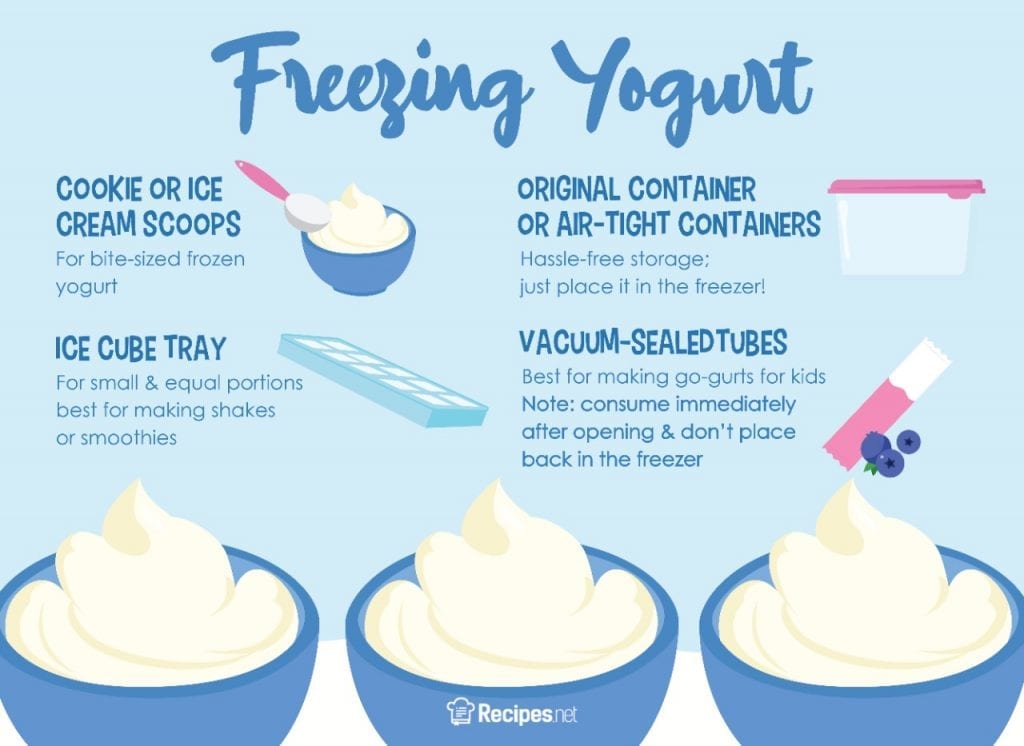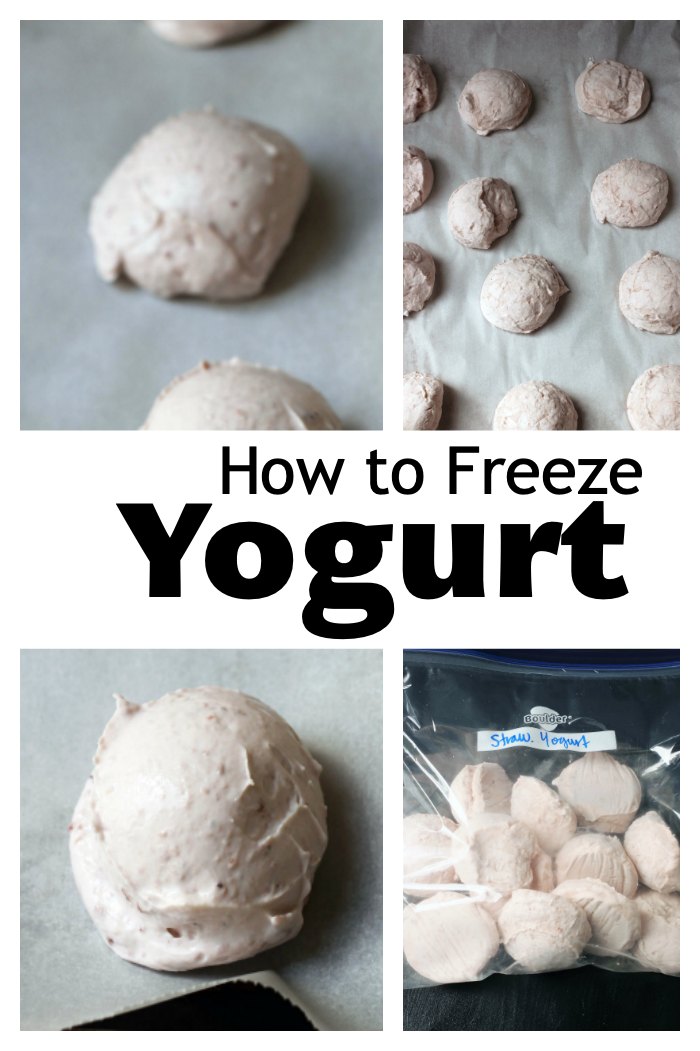When yogurt is put in the freezer, it becomes frozen yogurt. The texture becomes firm and icy, similar to ice cream.
Yogurt is a delicious and nutritious dairy product that is enjoyed by many people. However, if you’ve ever wondered what happens when you put yogurt in the freezer, the answer is quite simple. When yogurt is frozen, it transforms into a delightful treat known as frozen yogurt.
The once creamy texture of the yogurt becomes firmer and icier, resembling that of traditional ice cream. While freezing yogurt alters its texture, it retains its tangy flavor and nutritional benefits. In this blog post, we’ll explore the process of freezing yogurt, discuss the potential benefits and drawbacks, and provide tips for enjoying frozen yogurt at home.
The Science Behind Freezing Yogurt
When yogurt is placed in the freezer, it undergoes certain changes due to the freezing process. One significant change is the alteration in texture. The freezing causes the water content in the yogurt to form ice crystals, which can result in a grainy or icy texture when thawed. This change in texture may not be desirable for some individuals who prefer the smooth and creamy consistency of fresh yogurt.
Another aspect to consider is the impact on live cultures present in yogurt. The freezing process can potentially damage these live cultures, which are beneficial for gut health. Although freezing doesn’t completely eliminate the live cultures, their potency may be reduced.
| Changes in Texture | Impact on Live Cultures |
|---|---|
| Freezing can result in a grainy or icy texture when thawed. | The freezing process may potentially reduce the potency of live cultures. |

Credit: recipes.net
Comparing Frozen Yogurt To Regular Yogurt
Freezing yogurt can result in some noticeable differences compared to regular yogurt. Let’s take a look at the nutritional differences first. When yogurt is frozen, the texture changes and it becomes harder and more icy. This is because the water content in the yogurt forms ice crystals. However, the nutritional value remains relatively the same. The taste variations between frozen yogurt and regular yogurt also come into play. Frozen yogurt tends to have a slightly tangier flavor and a smoother consistency compared to its unfrozen counterpart.
When it comes to taste, frozen yogurt can be a refreshing and tasty treat, especially during hot summer months. However, it’s important to note that some brands of frozen yogurt may contain added sugars or artificial flavors, which can affect the overall nutritional profile. If you’re looking for a healthier option, choosing plain or low-fat frozen yogurt without any additional toppings or mix-ins can be a better choice.
In conclusion, freezing yogurt can alter its texture and taste, but the nutritional differences are minimal. Enjoying frozen yogurt in moderation can be a delightful and cooling option, but be mindful of the added sugars and toppings that can impact its healthiness.
Proper Ways To Freeze Yogurt
When freezing yogurt, it’s important to use airtight containers to prevent freezer burn. Plastic containers or reusable silicone pouches are ideal for freezing yogurt, as they provide a tight seal. Label the containers with the date of freezing to keep track of freshness. It’s best to consume frozen yogurt within 1-2 months for optimal taste and texture. Allow the yogurt to thaw in the refrigerator for a few hours before consuming. Avoid refreezing yogurt to maintain its quality.
Thawing Frozen Yogurt
Putting yogurt in the freezer can be a great way to extend its shelf life, but there are a few things to keep in mind before doing so. When it comes to thawing frozen yogurt, it is important to follow safe techniques to prevent any potential foodborne illnesses. One effective method is to place the frozen yogurt in the refrigerator overnight or for a few hours until it is completely thawed. Avoid thawing yogurt at room temperature or in warm water, as this can cause bacteria to grow.
In addition to safe thawing techniques, maintaining quality during the thawing process is also important. Freezing and thawing can cause the yogurt to become icy and lose its smooth texture. To prevent this, stir the yogurt frequently while it is thawing to redistribute any ice crystals. If the yogurt has separated or developed a grainy texture, try blending it in a food processor to restore its smooth consistency.
| Safe Thawing Techniques | Maintaining Quality During Thawing |
|---|---|
| – Thaw in refrigerator overnight or for a few hours | – Stir frequently while thawing to redistribute ice crystals |
| – Do not thaw at room temperature or in warm water | – Blend in food processor if texture has become grainy |
Creative Uses For Frozen Yogurt
You might be surprised to learn that putting yogurt in the freezer can actually be a delicious and healthy treat! Here are some creative ways to use frozen yogurt:
| Frozen Yogurt Treats | Cooking and Baking with Frozen Yogurt |
|---|---|
| – Frozen yogurt popsicles with fresh fruit – Frozen yogurt bark with nuts and chocolate chips – Frozen yogurt smoothie bowls with granola and fruit toppings |
– Use frozen yogurt as a substitute for ice cream in desserts like pie, cake, and cobbler – Make frozen yogurt parfaits with layers of fruit, yogurt, and granola – Use frozen yogurt as a base for homemade frozen yogurt bars with your favorite mix-ins |
Experiment with different flavors and toppings to create your own unique frozen yogurt creations. Not only is it a healthier option than traditional ice cream, but it’s also a fun and tasty way to cool down on a hot day.
Potential Drawbacks Of Freezing Yogurt
Freezing yogurt can have potential drawbacks, such as a change in texture and consistency. The yogurt may become icy and grainy, losing its creamy smoothness. Additionally, freezing can also affect the taste, causing it to become slightly sour or less flavorful.
| Potential Drawbacks of Freezing Yogurt |
| Consistency Issues |
| Freezing yogurt can lead to consistency issues. The texture of frozen yogurt becomes grainy and icy, which may not be appealing for some people. The ice crystals that form during freezing break down the structure of the yogurt, resulting in a less creamy and smooth texture. |
| Reduced Probiotic Benefits |
| Yogurt contains live and active cultures that provide numerous health benefits, including improved digestion and immune system function. However, freezing yogurt can reduce the number of live cultures present in the product. The freezing process can kill some of the bacteria, which means that frozen yogurt may not provide the same probiotic benefits as fresh yogurt. |
Commercially Available Frozen Yogurt Options
Freezing yogurt transforms it into a creamy and refreshing treat. Discover the commercially available frozen yogurt options that provide a delicious and convenient way to enjoy this frozen delight.
| Brands and Flavors | Store-Bought | Home-Frozen |
|---|---|---|
| Yasso | Available in most grocery stores | Can freeze any flavor at home |
| Tillamook | Widely available in the US | Can freeze any flavor at home |
| Turkey Hill | Available in most grocery stores | Can freeze any flavor at home |
| Ben & Jerry’s | Widely available in the US | Can freeze any flavor at home |

Credit: www.mashed.com
Faqs About Frozen Yogurt
Putting yogurt in the freezer can extend its shelf life significantly. Frozen yogurt can last up to 1-2 months in the freezer. However, re-freezing yogurt after it has been thawed is not recommended. The texture and consistency of the yogurt can change after being frozen and thawed multiple times.

Credit: goodcheapeats.com
Frequently Asked Questions
Can You Freeze Yogurt To Eat Like Ice Cream?
Yes, you can freeze yogurt to enjoy it like ice cream. Freezing yogurt gives it a creamy texture and makes it a refreshing frozen treat.
What Happens If You Accidentally Freeze Yogurt?
Accidentally freezing yogurt can change its texture and make it grainy. The water in the yogurt forms ice crystals, affecting its smoothness. However, the taste remains unaffected. Thaw it in the fridge and mix well before consuming.
Is Yogurt Still Alive After Freezing?
Yes, freezing yogurt will kill the live cultures, but it’s still safe to eat.
Can Frozen Yogurt Go Bad?
Yes, frozen yogurt can go bad. It should be consumed within 1-2 months for the best quality.
Conclusion
Freezing yogurt changes its texture and may affect its taste. It transforms into a creamy, ice cream-like treat that’s perfect for hot days. However, the process may kill some live cultures, reducing its probiotic benefits. Overall, freezing yogurt can be a delicious way to enjoy a cool, refreshing snack.
